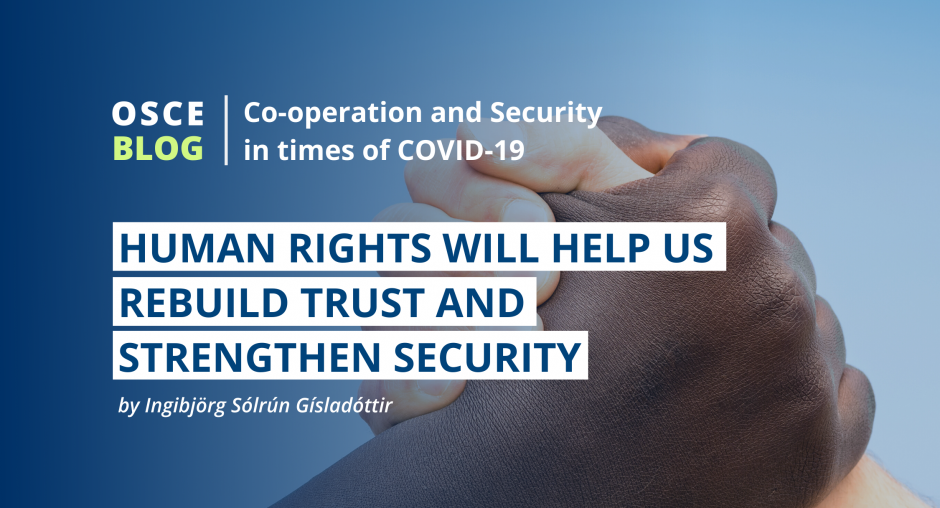After the pandemic, human rights will help us rebuild trust and strengthen security

The onslaught of COVID-19 brought with it a health emergency of global proportions. This presented a huge challenge to national leaders, to health systems worldwide, and to citizens. Unfortunately, it also became an excuse for human rights violations, many of which are still continuing today.
We all understand that governments have needed to act swiftly to protect their populations from the COVID-19 pandemic. And we understand this may require extraordinary measures. However, a state of emergency must be proportionate to its aim, and only remain in place for as long as absolutely necessary. If law enforcement or the military are given additional powers, it must be clear why. If public gatherings are banned and citizens are forbidden to move freely, these rules must be applied to everyone and not just to the supporters of opposition parties, to people of a particular religion, or to those with a certain skin colour. Arrests and fines must be well-justified and never arbitrary.
All countries across the OSCE have committed to upholding democracy and the rule of law, also during states of emergency. There is no situation in which it can be necessary, legitimate or proportionate to dismantle the separation of powers that lies at the core of any democracy. On the contrary, it is the democratic checks and balances that ensure our governments work in our interest – and not the other way round. A strong state is one that speaks with its citizens and respects their rights.
It is because democracy and human rights lie at the root of the solutions to the challenges we are facing and also because they have been so massively affected by the events and decisions of recent months that ODIHR is monitoring them so closely.
We are calling out intolerance wherever we see it, and working towards a broader understanding that it is through the strength of our diversity that we will overcome this crisis. Political leaders who tolerate human rights violations or exacerbate tensions between different communities for short-term (and short-sighted) political gain are therefore jeopardizing social cohesion in the longer term. As we have recently seen, those who feel excluded may also have the sense that they have nothing to lose.
The pandemic has been a time of particular hardship for already marginalized communities. For the Roma, often squeezed into overcrowded housing in congested neighbourhoods. And for migrants and refugees across the OSCE region, living in overcrowded camps in unsanitary conditions, and lacking even minimal protection against infection.
There are other challenges, too. One of the key checks to prevent abuses of power are democratic elections, and election observation is one of ODIHR’s flagship activities. COVID-19 has made us temporarily unable to deploy our traditional forms of observation mission, but we are using this time to further develop our observation methodology, which has evolved over many years in response to changing situations.
The pandemic has also created immense challenges for the rule of law in many countries as the democratic balance of power has tilted towards government. For democracy to function, parliaments and courts must be allowed to continue their work in spite of the curfews and lockdowns.
Despite the many challenges, I remain optimistic. I have other reasons for this beside the pandemic and the opportunities it brings for a renewed commitment to our shared values. This month, we mark the thirtieth anniversary of the Copenhagen Document, in which all states of the OSCE expressed “their conviction that the protection and promotion of human rights and fundamental freedoms is one of the basic purposes of government.”
The states that signed the agreements in Copenhagen and in Paris later the same year were both far-sighted and courageous. They were not only laying out the basis for the development of the region’s fledgling democracies, but also looking beyond the immediate challenges to a time of peace and growing prosperity.
In 1990, this was anything other than inevitable. The challenges of that time were colossal, and only appeared surmountable to many people because of the optimism that reigned at the time, the ‘we can do it’ atmosphere. Post-pandemic, we need to regain that sense of possibility, of the positive change that each individual can make and the enormous difference that these changes can make on societies collectively.
Respecting human rights is the response of humanity to the shared problems faced by humanity. Both during and after the pandemic.

